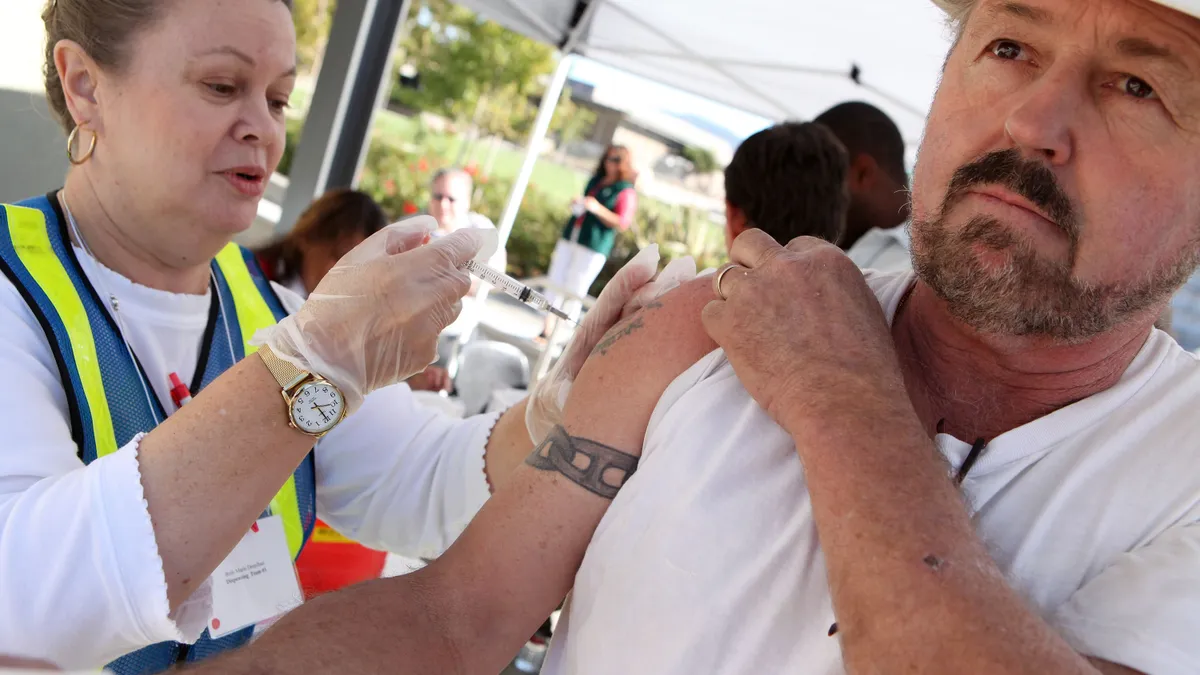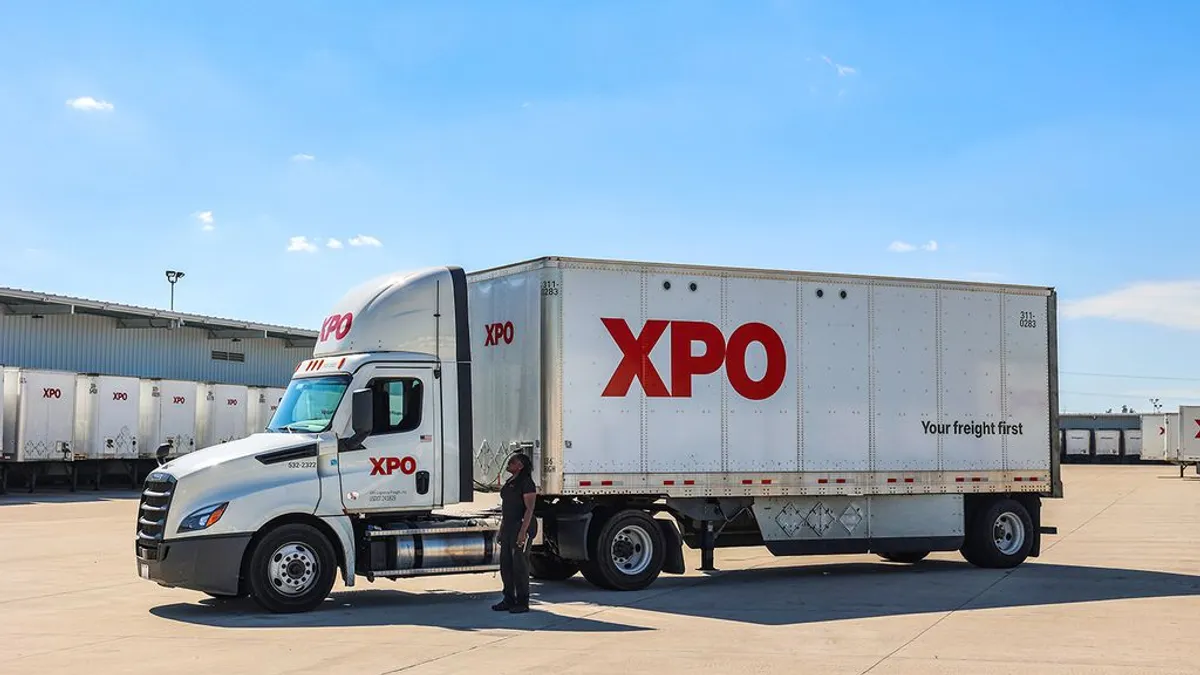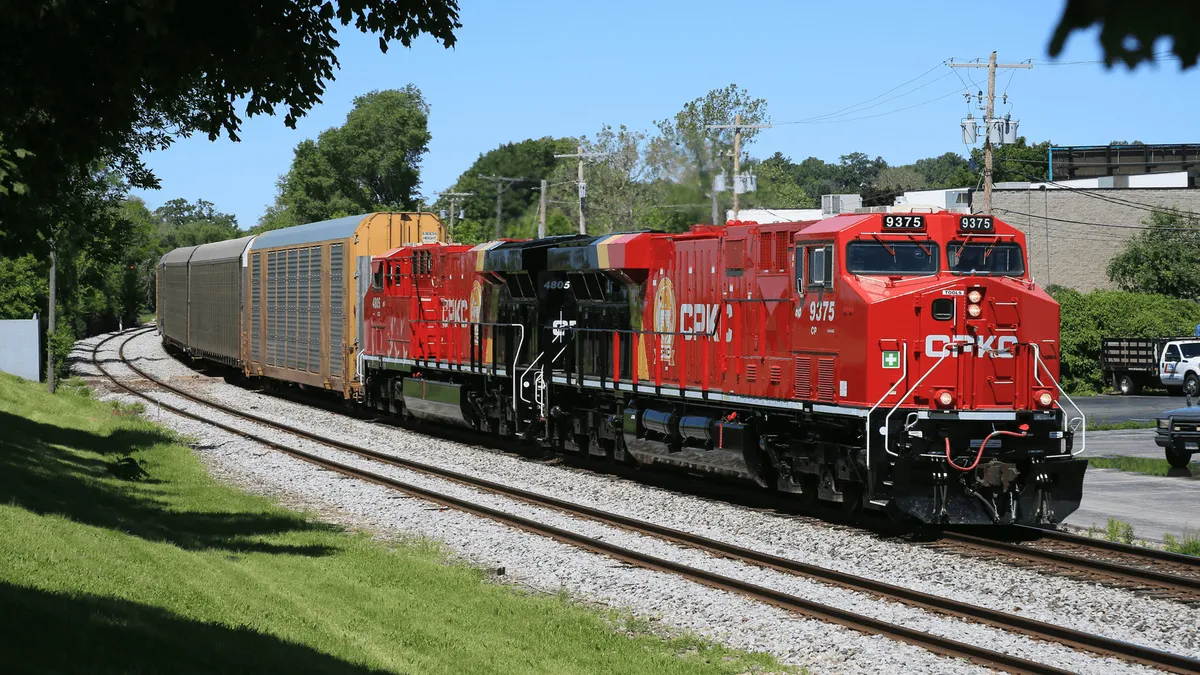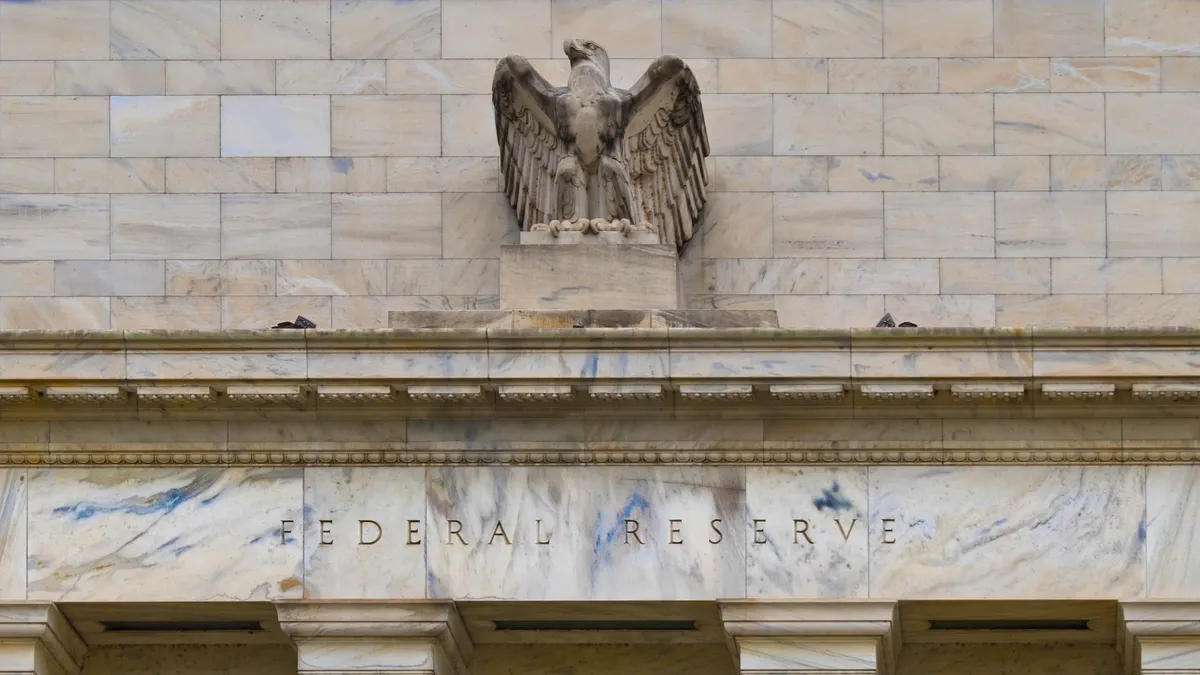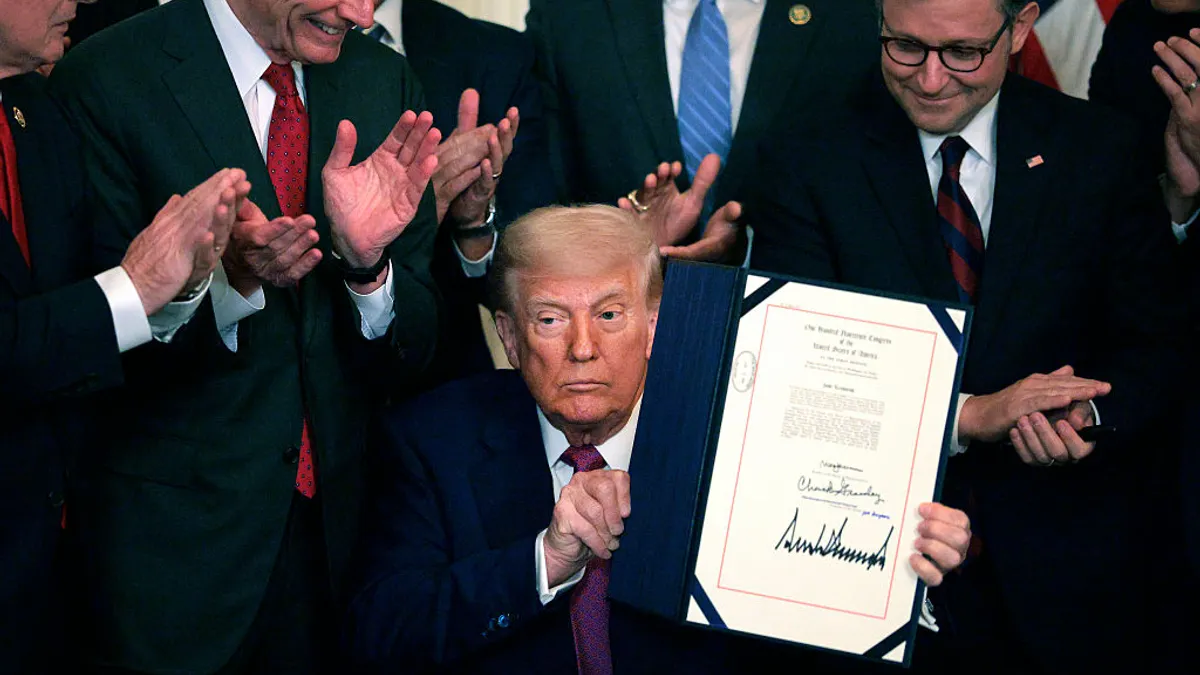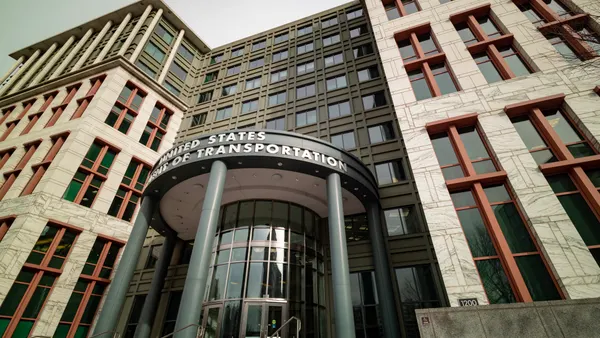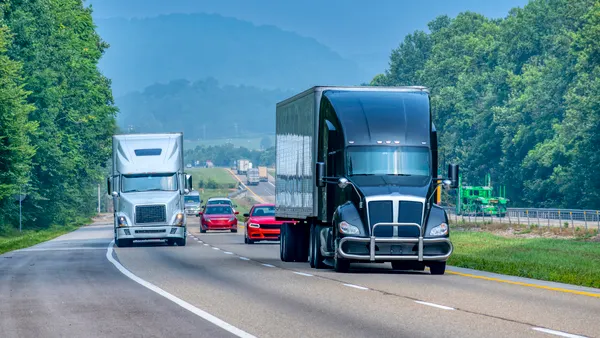Drivers and leaders in the transport industry are speaking out against the recently announced vaccine mandate, calling it illogical and discriminatory.
The mandate from the Occupational Safety and Health Administration enforces COVID-19 vaccinations or regular testing on employees of private companies with 100 or more employees. If employees refuse the vaccines, they must submit to regular testing. The mandate was set to take effect Jan. 4, but the 5th U.S. Circuit Court of Appeals temporarily stayed the rule following several legal challenges.
The American Trucking Associations came out against the OSHA mandate. In its latest move, the group filed a lawsuit Nov. 9 against the mandate in the same court circuit. State trucking associations in Louisiana, Mississippi and Texas, along with supply chain groups including the International Warehouse Logistics Association and the National Retail Federation, joined the suit.
“We told the administration that this mandate, given the nature of our industry and makeup of our workforce, could have devastating impacts on the supply chain and the economy and they have, unfortunately, chosen to move forward despite those warnings," Chris Spear, ATA president and CEO, said in a statement. "So we are now, regrettably, forced to seek to have this mandate overturned in court."
It's also unclear if the mandate would even apply to truck drivers, because it exempts employees "who work exclusively outdoors," a Labor Department spokesperson told Transport Dive.
The transport industry is populated with plenty of drivers who are outspoken on the issue. At least one Facebook group formed against forced vaccinations on drivers. "Freedom Is Calling," recently renamed from "Stop the Tires for Medical Freedom," advocates for work stoppages and slowdowns and counts 35,000 people as members.
But some of the group's members are independent drivers. Those drivers won't be affected by the mandate because they're not part of a company with at least 100 employees. That provision of the mandate is why the ATA said the rule smacks of industry favoritism.
"If these mandates are designed to protect Americans, then why the discriminatory 100-employee threshold, picking winners and losers for both employees and employers?" Spear said in a statement in September. "ATA, its members and our drivers remain committed to delivering life-saving COVID vaccines, but these proposed requirements — however well-intentioned — threaten to cause further disruptions throughout the supply chain, impeding our nation’s COVID response efforts and putting the brakes on any economic revival."
When contacted, some carriers declined to make a statement. A spokesperson for a large carrier, who declined to go on record, noted there is uncertainty about how to pay for the testing, and even who will pay for the weekly kits.
"If these mandates are designed to protect Americans, then why the discriminatory 100-employee threshold, picking winners and losers for both employees and employers?"

Chris Spear
President and CEO of the American Trucking Associations
The Teamsters, the largest trucking union, also declined to comment on the OSHA order.
But U.S. Xpress joined the ATA in criticizing the proposal.
"While in favor of the COVID-19 vaccine, we are opposed to mandating it for private employers," said Brad Carmony, U.S. Xpress vice president of brand communications. "We continue to encourage employees to get the vaccine but being vaccinated is not currently a condition of employment at U.S. Xpress."
Carmony said U.S. Xpress is aligned with health guidance from the Centers for Disease Control and Prevention. The trucking firm requires masks in offices, terminals and customer facilities.
Werner Enterprises also lashed out against the mandate. CEO Derek Leathers said he's personally pro-vaccine, and so is Werner. The firm has also run vaccination clinics. But he's against the mandate, in part because of "the lack of logic" of applying it to large employers and not small or independent trucking firms.
"Nobody's going to convince me 90% of the trucking industry has 20 trucks or less, which means they're under 100 employees, but somehow COVID doesn't go there, but it does come to Werner," Leathers said at at the Council of Supply Chain Management Professionals Edge 2021 conference in Atlanta Monday. "That makes no logical sense."
Leathers said he feared drivers who oppose the vaccine would either leave for smaller carriers or exit the professional altogether.
"I've heard people say ... 'no one's going to quit their job over this.' They've never met a trucker," Leathers said."They need to go out to a truck stop and have a dialogue and find out how passionate these people are about things they believe or don't believe."
"That makes no logical sense."

Derek Leathers
CEO of Werner Enterprises
Websites popular with drivers are finding a fair amount of opposition. In December, CDL Life asked about vaccinations and got 1,053 responses. Seventy-nine percent said they would not get immunized.
Recently, CDL Life asked a new question: How will the mandate affect you?
The outlet reported 2,200 respondents said 27.4% said they were vaccinated; 26% said they will accept termination before vaccination; 23.9% said their firm has fewer than 100 employees or they are an owner-operator; 10.3% said they will quit; and 9.7% said they will look for new work or become an owner-operator.
Only 2.5% said they will get the vaccine.
It's unclear how many of the threats are real, or just bluster.
The White House's plan for the OSHA mandate is controversial among policy makers and employers. A number of Republican governors, including ones in Texas and South Dakota, have threatened to haul the White House into federal courts. But the order also puts the spotlight on big firms who are now stuck in the middle of the highly polarized debate about COVID-19 vaccinations.
"This is a troubling moment in time, the day that I'm mandated to mandate what someone else has to do to their body. I didn't sign up for that when I became CEO," Leathers said.
UPS said the order is new, and is still being reviewed. But a spokesperson urged UPS employees to get vaccinated, regardless of the order.
"We are reviewing the Executive Order and what it means for UPS and our people," said Glenn Zaccara, UPS spokesman. "We're urging all of our employees to get vaccinated. Vaccination remains the best way to keep our communities and our company healthy and strong."
Shefali Kapadia contributed to this report.
This story was updated with details about the American Trucking Associations' lawsuit and the 5th U.S. Circuit Court of Appeals' stay on the mandate.
Correction: A previous version misstated the size of the businesses required to comply with the mandate. It applies to firms with 100 or more employees.


